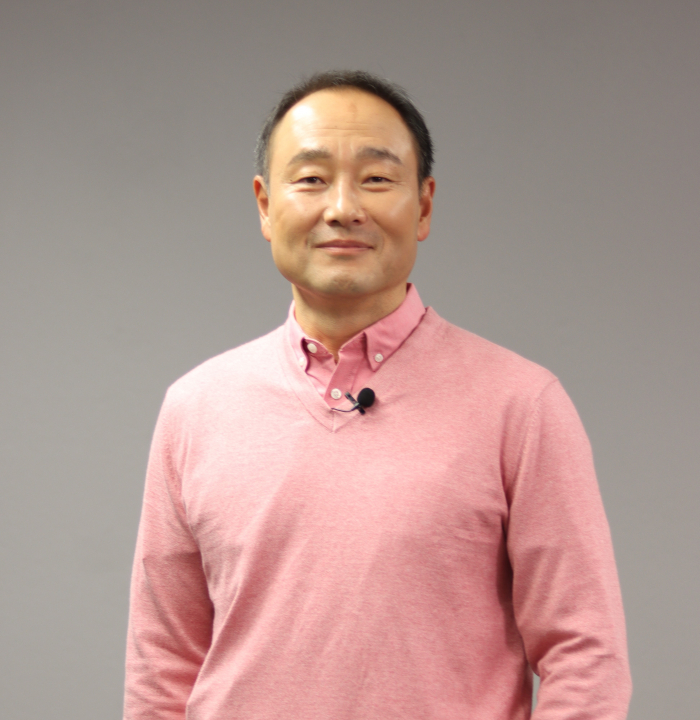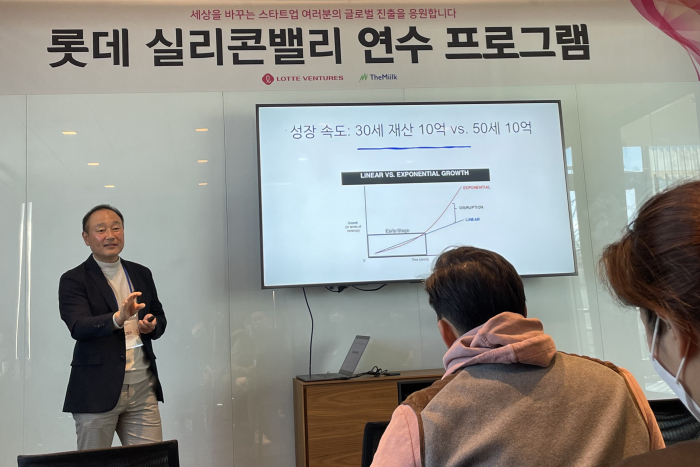Korean startups
Translink: Startup fundraising barely affected by economic downturn
The VC's managing partner urges startups to focus on a go-to-market strategy, rather than flipping, for US market entry
By Jun 26, 2022 (Gmt+09:00)
4
Min read
Most Read
LG Chem to sell water filter business to Glenwood PE for $692 million


Kyobo Life poised to buy Japan’s SBI Group-owned savings bank


KT&G eyes overseas M&A after rejecting activist fund's offer


StockX in merger talks with Naver’s online reseller Kream


Mirae Asset to be named Korea Post’s core real estate fund operator



Venture capital, or the business of investing in innovative private companies with growth potential, is a local endeavor most of the time.
While this drives most VC heavyweights based in Silicon Valley to look for investment opportunities at home, there is a trend of strengthening ties between the South Korean and Korean-American startup and venture capital ecosystems.
Translink Investment Co.’s managing partner Kim Bum-soo is a quintessential example of someone who has been liaising across the Pacific Ocean for nearly two decades.
The 52-year-old began his career as a venture capitalist at KTB Investment & Securities in 2000 before launching his own edutech startup BrightStorm nine years later.
Kim joined Translink Investment in 2019 and works between Silicon Valley and Seoul. The venture capital firm specializes in Software as a Service (SaaS), consumer packaged goods, and deep tech, among others.
The Korea Economic Daily Global Edition sat down with Kim to get his insight on what makes the South Korean startup scene different from the North American market and more.
CULTURE OF OPENNESS
Kim admits that the culture of openness or the willingness to help each other network is more prevalent in Silicon Valley than in Seoul.
This is his reasoning.
Even though the startup scene is cutthroat around the globe, there are plenty of examples of success in the US startup capital.
Such a unique level of success all around instills the idea in people’s heads to be aware that whoever you are talking to – no matter where they are now – could be the next Steve Jobs.
Kim shared an anecdote about a Filipino American multi-billionaire, a three-time start-up veteran whom he met some 15 years ago.
When Kim was just getting himself known in the US, he had the opportunity to have a meeting with the entrepreneur. Despite being filmed for a documentary by a Philippines national broadcaster the entire day, he dedicated plenty of time to speaking with the then-new hire of KTB Ventures.
When asked why, the already established entrepreneur answered: “When I left the Philippines to emigrate to the United States, I had only a few hundred bucks in my pocket. Whatever I could achieve, so can you.”
Kim is hopeful that a similar mindset of recognizing and respecting each other’s potential is beginning to spread on the peninsula thanks to the emergence of startup multi-billionaires.
Kakao Corp. founder and chairman Kim Beom-soo and Naver Corp. co-founder Lee Hae-jin are worth $5.9 billion and $1.5 billion respectively.

ZERO-SUM
While the entrepreneurs on both sides are eager to succeed, there is a reason why the South Korean founders seem to face more challenges than their US counterparts.
“South Korean startups often approach a market as a zero-sum game,” explained Kim. “So when they build a product or service, they aim to provide an end-to-end service so as not to leave any room for outside contribution.”
But he elaborated this is how it used to be in the United States as well, for example with Apple Inc. wanting to flood its App Store with in-house developments.
These days, US tech giants prefer to create a broader ecosystem by encompassing third-party developers’ participation rather than offering closed-circuit products.
“This mindset shift is brewing in South Korea,” the VC veteran said with a cheeky smile. “There are minor differences but we are all quite the same.”
WHERE TO PUT EFFORT
Kim cautioned against a particular trend among startup founders in South Korea, which is over-emphasizing the importance of turning their businesses into US corporations.
He mentioned Samsung Electronics Co. and Hyundai Motor Co. as companies that are faring well abroad while remaining Korean entities.
“Putting too much effort into flipping is like researching housing near Harvard University while waiting to be admitted to the school. You haven’t even received the acceptance letter,” said Kim.
He added, “90% of the effort should be spent on developing a sound go-to-market (GTM) strategy.”
EARLY-STAGE STARTUPS
Despite the worsening macroeconomy concerns, the head of Translink Investment’s Silicon Valley office says the firm’s budget for spending will not budge.
“We expect 70% of our investment portfolio to be flops and the return on the rest of the investment, if successful, will take at least five years,” he explained. “Taking that into consideration, it doesn’t really matter whether the market is good or bad now.”
Things could be different for investors in later-stage startups, for example, those that invest in pre-IPOs.

PROMISING SECTORS
Lastly, Kim says he has yet to see how this year’s buzzword of metaverse will impact our daily lives – and whether they’ll be worth his capital.
Instead, he plans to bet on entrepreneurs who will advance South Korea’s biotech and fintech industries, which he believes to be far behind that of the United States.
The South Korea-born investor who has been living in the US since 2003 also forecasts the country’s business-to-business (B2B) SaaS market to surge in the near future.
Kim expects more Korean conglomerates to adopt cloud technology, in line with the worldwide trend.
Write to Jee Abbey Lee at jal@hankyung.com
More to Read
-
 Venture capitalSouth Korean startups raise record-high Series A funding
Venture capitalSouth Korean startups raise record-high Series A fundingJun 08, 2022 (Gmt+09:00)
3 Min read -
 Korean startupsChildcare app Piloto aims to instill healthy device use
Korean startupsChildcare app Piloto aims to instill healthy device useMay 25, 2022 (Gmt+09:00)
2 Min read -
 Korean startupsSaaS provider Clika wants to lead S. Korea's MLOps market
Korean startupsSaaS provider Clika wants to lead S. Korea's MLOps marketApr 01, 2022 (Gmt+09:00)
1 Min read -
 Korean startupsTranslink and Banks Foundation form $10 mn fund for S.Korean startups
Korean startupsTranslink and Banks Foundation form $10 mn fund for S.Korean startupsMar 14, 2022 (Gmt+09:00)
1 Min read -
 Chief ExecutivesThanks to deep learning, we're in biggest tech boom cycle: GFT Ventures
Chief ExecutivesThanks to deep learning, we're in biggest tech boom cycle: GFT VenturesMar 08, 2022 (Gmt+09:00)
5 Min read
Comment 0
LOG IN


